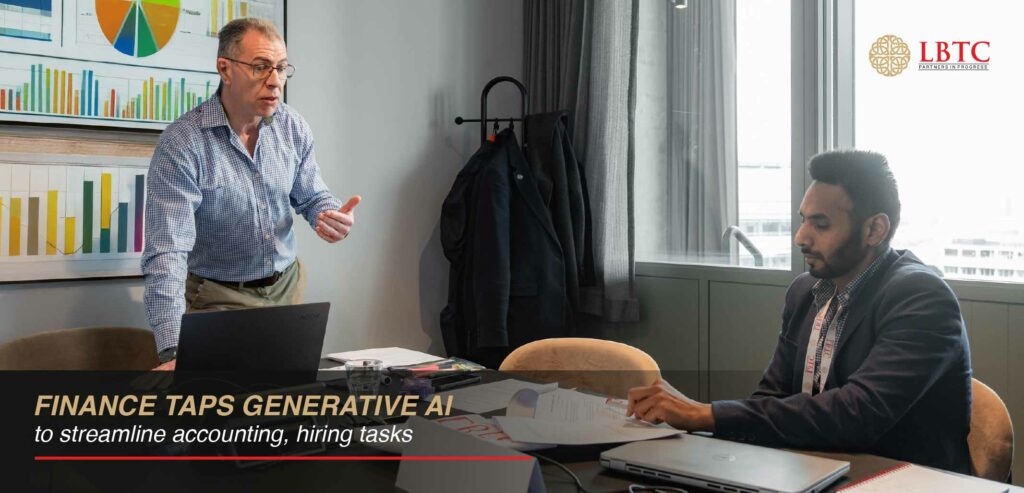
The financial sector is undergoing a significant transformation with the incorporation if generative AI as it is known to enhance the efficiency in accounting and recruitment processes. This technological advancement is known to reshaping several traditional practices, which offers both opportunities as well as challenges for professionals in their industry.
Increasing Accounting Efficiency
Generative AI is streamlining accounting operations by automating regularly tasks as data entry, transaction categorisation, and financial report making. This automation decreases the time required for monthly financial work, which helps organisations to close their accounts faster and allocate the resources for other initiatives.
Whereas in India the impact of generative AI on accounting is very high. A report given by Pearson that by 2032, AI can easily Automate 46% of the time that’s needed for accounting tasks in the country. This shift emphasises the rising importance for professionals to adapt by bettering their skills through accounting courses and accounting training programmes to remain competitive in this evolving landscape.
Optimising Recruitment Processes
Not just accounting, AI is revolutionising recruitment within the financial sector. By analysing massive data, AI assists in picking the candidates who fit best for specific roles, thereby easily streamlining the hiring process. Kevin Rhodes, CFO of Extreme Networks, noted that AI models can offer HR departments great recommendations about resumes to prioritise, which reduces the time spent on initial screening.
Navigating Challenges and Embracing Opportunities
There are several benefits of generative Ai; however, its adoption has certain challenges, which are security and compliance. Financial organisations must come up with strong regulations and frameworks to reduce the risks associated with data breaches and make sure to adhere the evolving regulations.
Jim Hillier, CFO of Bitsight, emphasised the need of strict governance rules to prevent data to reach the wrong hands, which highlights the dual-edged nature of AI technology.
Despite these challenges, the integration of AI in finance is not aimed at replacing human professionals but at augmenting their capabilities. By quickly automating all the regular tasks, AI allows accountants and financial analysts to make informed decisions. This great evolution emphasises the importance for professionals to take continuous learning through accounting courses and accountant training to effectively collaborate with AI systems and use them to their full potential.
Conclusion
Lastly, the incorporation of generative AI in the financial sector hugely changes accounting and recruitment techniques, driving efficiency in work and innovation. Now, as the industry keeps evolving, professionals equipped with up-to-date training will be well-positioned to navigate this great landscape and harness the opportunities presented by AI advancements.

Leave a Reply